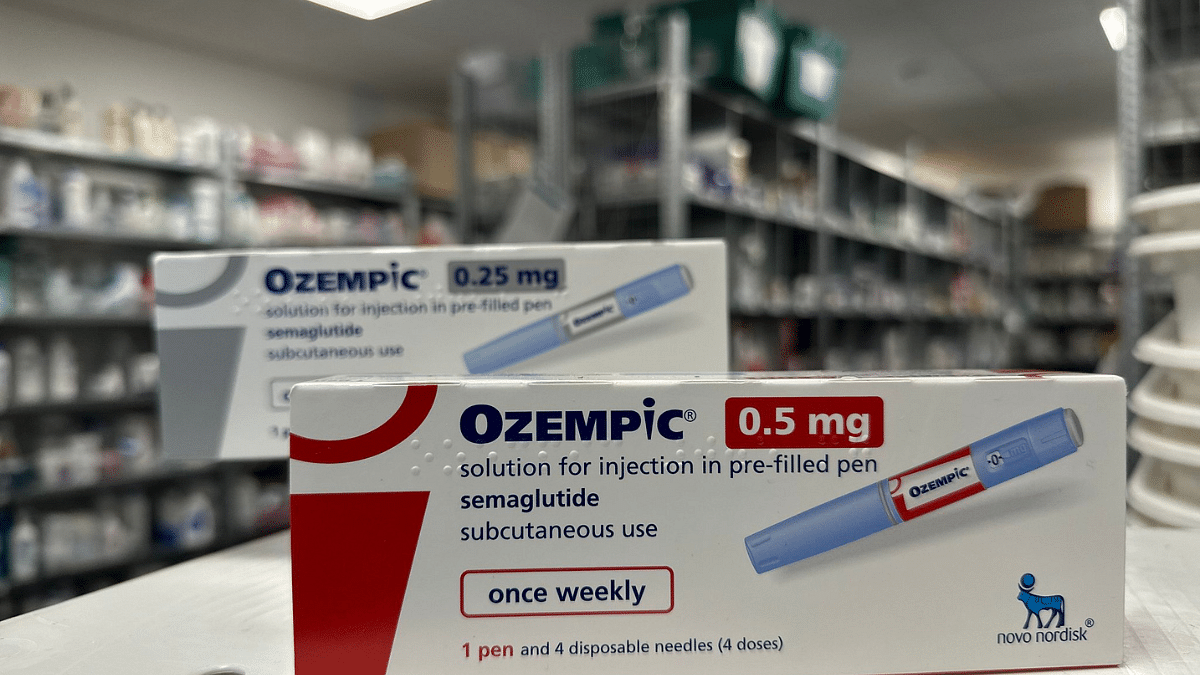New Delhi: A new study suggests that the blockbuster diabetes drug Semaglutide could be sold for a profit at just $0.89 (Rs 83.35) a month compared to $353 (Rs 29,421) currently charged in the US, highlighting “exorbitant corporate profiteering” by pharmaceutical companies when it comes to such medicines.
According to an analysis by Doctors Without Borders or Médecins Sans Frontières (MSF), this disparity in pricing for Semaglutide, sold under the brand name of Ozempic, results in 39,562 percent markup — the difference between the production cost and selling price of the drug.
Factors such as cost of innovation, monopoly and profiteering contribute to the high pricing of such drugs. According to the study, patents prevent competition and play a leading role in keeping prices high for a wide range of medicines.
The study, published Thursday in the peer-reviewed Journal of the American Medical Association (JAMA) analysed the prices of new diabetes medicines and insulin pens used by type 1 diabetics and severe cases of type 2 diabetes.
In a statement, MSF said that the first key finding of the study is regarding a newer class of drug called Glucagon-like peptide-1 (GLP-1), which is used to treat people with diabetes and is routinely recommended and included in treatment guidelines in high-income countries.
This includes drugs marketed as Ozempic and Trulicity by the Danish Novo Nordisk and the American Eli Lilly respectively.
Semaglutide and Trulicity are Glucagon-like peptide-1 (GLP-1) agonists used in type 1 and 2 diabetes and some cases of obesity. Novo Nordisk and Eli Lilly are the only producers of these GLP-1s today, and their intellectual property barriers on the drugs and injection devices block any generic manufacturing that could help bring the prices down.
“MSF’s study estimates that GLP-1s for diabetes could be sold at a profit for just US$0.89 per month, compared to the price of $95 (Rs 7,918) per month charged in Brazil, $115 (Rs 9,585) per month charged in South Africa, $230 (Rs 19,170) charged in Latvia and $353 (Rs 29,421) charged in the US, which is a 39,562 percent markup over what the estimated generic price could be,” said the MSF.
The medicines bind receptors of gut hormones like GLP-1, which regulate the secretion of pancreatic hormones, appetite as well as gut function. As a result, they promote the feeling of stomach fullness.
Semaglutide is available in India in the form of pills under the brand name Rybelsus and costs several thousands of rupees every month.
ThePrint reached Novo Nordisk and Eli Lilly for comment via emails. This report will be updated if and when their responses are received.
Also Read: India denies nod to ‘1st-ever weekly insulin’ for diabetics, seeks more info from maker Novo Nordisk
‘Double standard of care unacceptable’
The second significant finding is regarding the price of insulin pen injection devices, which are preferred by people living with diabetes over using multiple syringes each day to inject insulin out of vials and are also safer with increased dosing accuracy.
The MSF study finds that one pre-filled human insulin pen could be sold at a profit, at an estimated generic price of just $0.94 (Rs 78.35), compared to the $1.99 (Rs 165.86) price in South Africa, $5.77 (Rs 480.92) in India, $14 (Rs 1166.87)in the Philippines, and $90.69 (Rs 7558.82) in the US.
Also, according to the costing analysis, a long-acting pre-filled analogue insulin pen could be priced at $1.30 (Rs 108.35) each, compared to the price of $3.00 (Rs 250) charged in South Africa, $7.90 (658.45) in India, $25.20 (Rs 2100) in the Philippines, and $28.40 (2367 in the US – a 2,153% markup.
This means that insulin pens could be the more affordable option compared to the older and less user-friendly vials if the corporations making them would reduce their prices, MSF said.
It adds that the standard of care in high-income countries, which is delivering analogue insulin in a pen device, could cost $111 (Rs 9,251) for one patient in a year, which is 30 percent less than human insulin in a vial.
“.. continuing to deliver this double standard of care is unacceptable, and based on this costing study, unnecessary,” the statement says.
‘Double standard of care’ in medicine is the latitude given to one group during treatment in comparison to another.
A survey MSF conducted among over 400 people on insulin in 38 countries, including India, found that 82 percent preferred using insulin pens as it was easier to give the correct dose, less painful, and less stigmatising to use in public.
“Despite that, the fact that insulin pens are not available in public health systems in India suggests that type 1 diabetic patients and those with type 2 diabetes and indicated for insulin are not in the priority of the government’s programme for non-communicable diseases, Leena Menghaney, South Asian head of the MSF Access Campaign, told ThePrint.
The study shows that it could be more affordable to use insulin pens for both human and analogue insulins instead of vials of human insulin injected with syringes, even though that has always been thought to be the most affordable — and therefore, the only — option offered to people in low- and middle-income countries, Dr. Helen Bygrave, non-communicable diseases adviser for MSF’s Access Campaign, said in the statement.
“If the cost of insulin and the devices needed to inject it is included in the calculation, the myth that insulin pens and newer insulins have to be more expensive is busted,” she said.
Also Read: ‘Diabetes capital’ India slated to get world’s 1st once-a-week insulin ‘by 2025’

